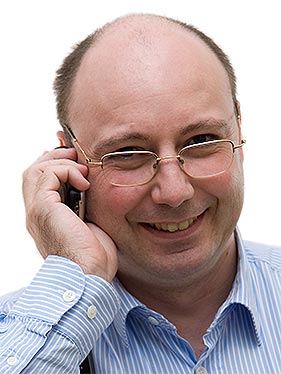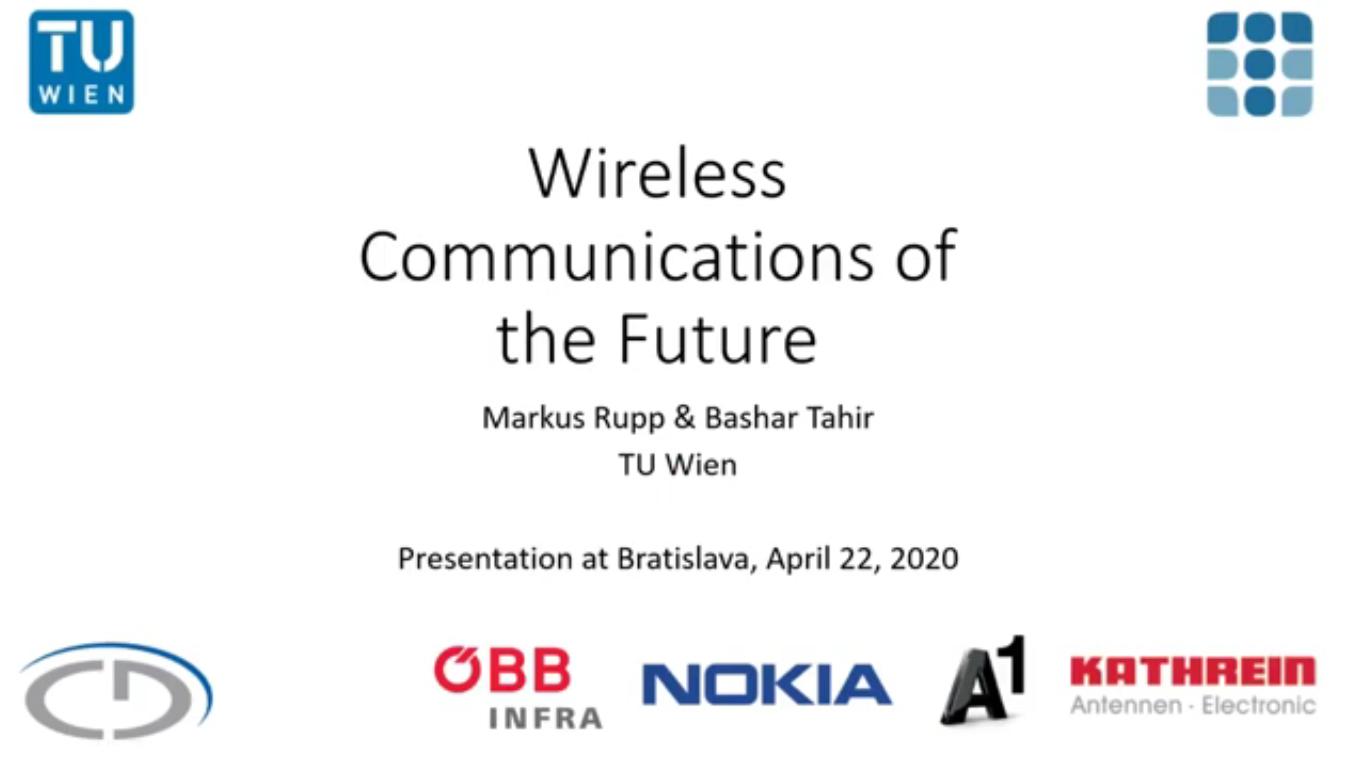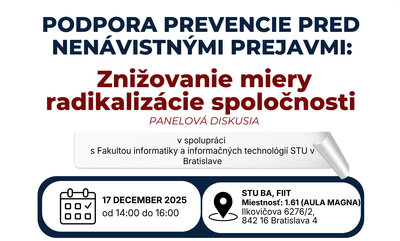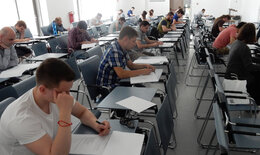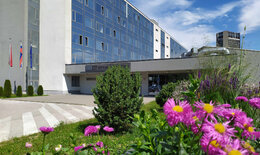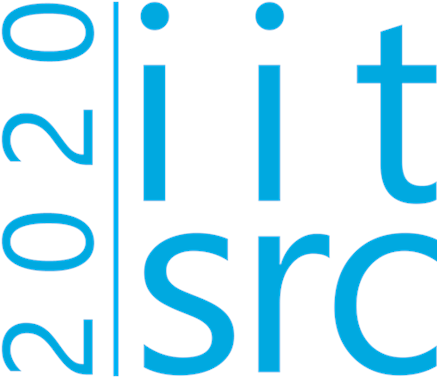
Markus Rupp: Wireless Communications of the Future
(Vienna University of Technology, Austria)
|
|
Abstract The UN predicts cities to increase dramatically in size in the coming years. As more and more shares of the human population will live in cities, such new cities face plenty of novel challenges: public transportation next to individual traffic will increase, requiring more efficient planning and scheduling as well as safety regulations. More energy demands require efficient control of limited and expensive resources. All of these demands require a novel wireless infrastructure. As a consequence of such dramatic changes that we will face in the coming two decades, the constraints on wireless networks will also need to be changed considerably. My presentation will exemplary show various research activities in our labs concerning NOMA techniques that are intended to solve many of such new problems. |
Markus Rupp (IEEE Fellow) received his Dipl.-Ing. degree in 1988 at the University of Saarbruecken, Germany and his Dr.-Ing. degree in 1993 at the Technische Universitaet Darmstadt, Germany, where he worked with Eberhardt Haensler on designing new algorithms for acoustical and electrical echo compensation.
From November 1993 until July 1995, he had a postdoctoral position at the University of Santa Barbara, California with Sanjit Mitra where he worked with Ali H.Sayed on a robustness description of adaptive filters with impact on neural networks and active noise control. From October 1995 until August 2001 he was a member of Technical Staff in the Wireless Technology Research Department of Bell-Labs at Crawford Hill, NJ, where he worked on various topics related to adaptive equalization and rapid implementation for IS-136, 802.11 and UMTS, including the first MIMO prototype for UMTS as well as the first WiFi prototypes.
Since October 2001 he is a full professor for Digital Signal Processing in Mobile Communications at the Vienna University of Technology where he founded the Christian-Doppler Laboratory for Design Methodology of Signal Processing Algorithms in 2002 at the Institute for Communications and RF Engineering (now Institute of Telecommunications). He served as Dean from 2005-2007 and 2016-2019 as well as Head of Institute from 2014-2015. From 2015-2019 he had a joined agreement with TU Brno, Czech Republic, supervising the wireless communication group there.
He was associate editor of IEEE Transactions on Signal Processing from 2002-2005, JES EURASIP Journal on Embedded Systems from 2004-2019, and is currently associate editor of JASP EURASIP Journal of Advances in Signal Processing. He was elected AdCom member of EURASIP from 2004-2012 and served as president of EURASIP from 2009-2010. He authored and co-authored more than 650 scientific papers and patents on adaptive filtering, wireless communications, and rapid prototyping, as well as automatic design methods. He is a Fellow of IEEE.

